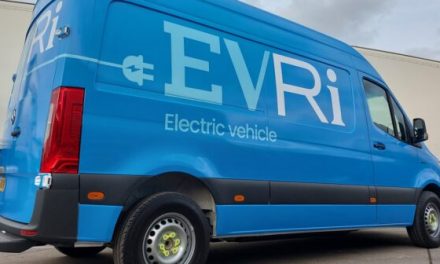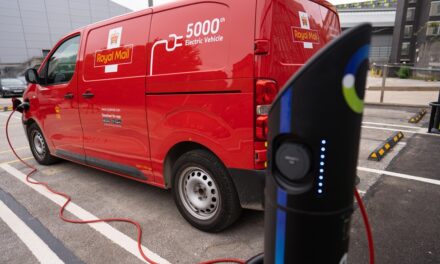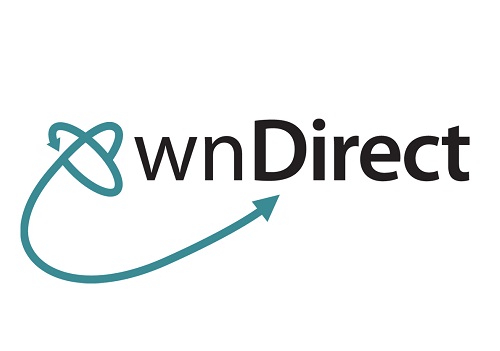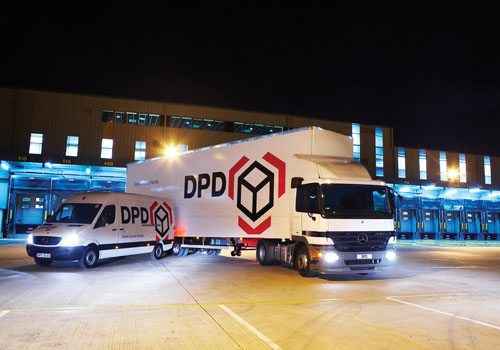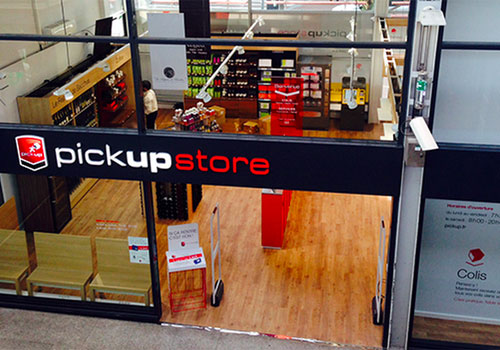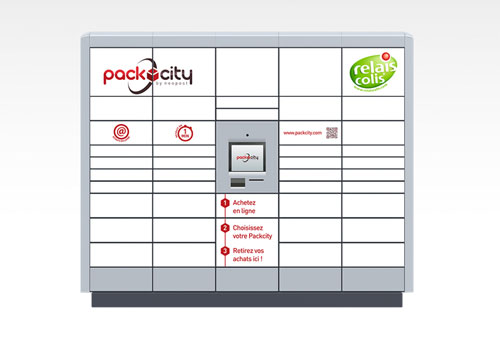
Geopost: Accelerating on all fronts
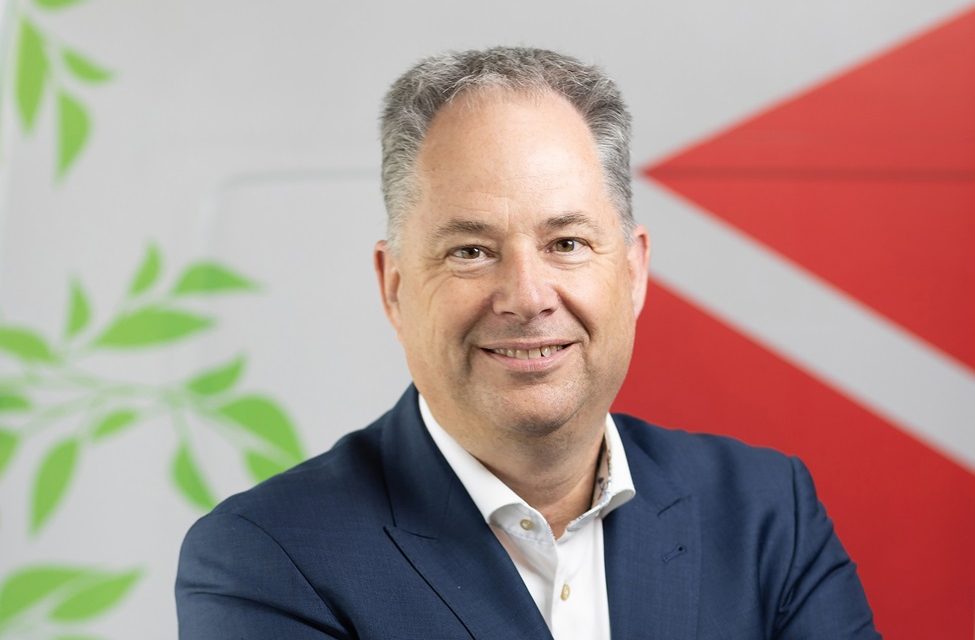
Post & Parcel speaks to Eric Dietz, COO Europe and Executive Vice President of Geopost on the importance of being entrepreneurial, why having understanding of customers preferences is key to staying ahead of the curve, and his plans for parcel locker dominance in Europe.
Can you give me an overview of your role?
I’m responsible for Geopost activities in Europe, covering 22 countries with a total revenue of roughly 15 billion euros and responsibility for 50,000 employees.
You have been described as a transformational leader. What kind of transformation do you hope to bring about at Geopost?
I think if you look at transformations in the industry today, we are in what I call the post-COVID era where we have to manage completely new growth projections. During COVID, it was all about managing very strong growth. Today, it’s about managing almost nil growth in a climate when lots of our financial metrics have severely changed. Inflation is at its highest and labour scarcity is a big problem. And as the volumes are not really growing we are not able to offset the cost increases by our volume growth. So in terms of transformation it is all about making the company as lean as possible, making processes as efficient as possible and offering the best propositions to serve our customers. In this way we are surging the waves of the economic climate as it is today.
What do these propositions look like?
So opening more out of home delivery alternatives, which are a bit more cost efficient and more convenient to consumers. Also creating more consistent and quality services, and pushing international possibilities for customers to the next level.
What drew you to the industry 30 years ago?
Logistics is in my blood. My dad worked with a truck manufacturer, and as a kid I was always interested in transports and logistics. I was driving trucks on their test circuit at my dad’s work when I was 12 years old. I became a courier driver at the age of 18 to finance my studies at university. And I was in the logistics part of the army when I did my army service.
When did you formally start working in the sector?
I started my career in the parcel industry in 1984 as a Courier driver and in 1991 as a marketing employee at PostNL. I still remember being the Commercial Director signing the first e-commerce contract with a company called Bol.com in the Netherlands in around 1998 which went on to be a very successful venture. It was a very dynamic time as there were lots of start-ups trying to kickstart e-commerce.
What has kept you here?
If I look back at my 30 years of experience in this sector, it’s still a young market which started out as an almost completely b2b Market 20 years ago and has transformed into a global, b2c driven, innovative market as it as it stands today. It has matured massively. And even in these tough times. It remains fun to be in this industry.
How much of a priority are parcel lockers for Geopost?
It is one of our top priorities to expand our network in Europe and we’re already well on the way to fulfilling this. The network consists not only of lockers, but also of pickup points. We have small and larger retailers where consignees are able to pick up their parcels. We see a clear trend in the market of b2c towards this out of home solution as it is convenient, and you can choose the time that you go to the shop or locker to pick up your parcels.
Is there an appetite for parcel lockers throughout Europe?
We’re investing heavily in parcel lockers whilst at the same time bringing innovations to the last mile market like predictive analytics.
There is a big difference between the East European part out of network which is already really mature and the West European market where last mile (home delivery) is still the dominant factor in the market. According to our latest e-shopper barometer which analyses consumers’ behaviours and expectations all over Europe, we can see that in Estonia, Lithuania and Poland for instance, parcel lockers are the favourite delivery location, whereas home delivery remains the preferred delivery option in Spain, in the UK, in France or the Netherlands.
Why is it so important for you to track customer preferences?
We are in a very dynamic market with a lot of local specificities. Therefore, the sooner you understand the change of demands, the sooner you can align your actions with customer preferences. It’s the market that drives our solutions, not vice versa. And this is where Geopost’s model really excels because we have really autonomous management teams that can make their own decisions so we can act swiftly in all local environments, being as entrepreneurial as possible. And to that we need a deep understanding of our consignee’s preferences and local trends. And that’s the reason why we do this intensive shopping barometer every year, because we like to understand our customers, and heed the early warning signals so as soon as customers’ needs have changed Geopost is already there.
Can you tell me about your sustainability agenda?
I think if you want to be a market leader in our field, you need to pick certain elements where you really want to be the front runner. And sustainability is Geopost’s. We are really committed to push the sustainability agenda as fast and as far as we can, because we firmly believe that this will be a necessity in the coming years – the licence you will need to operate. As we all know, climate change is already having an impact on our industry and we need to do our best to be front runners to push the markets and serve the needs of our customers. We are heavily involved in lots of conversations with our customers for example Nike, who is really pushing us further and faster to be a front runner in sustainability. We all need to do what is possible to get to net zero as soon as possible. And we’re making great progress. We need to keep up the pace of change even in the current, more challenging economic situation – we will not slow down our commitment.
In what way are you pushing forward to be a frontrunner?
As the largest parcel delivery network in Europe, we have the opportunity to open the way for the sector on sustainability, particularly decarbonization. We do this by setting ourselves bold ambitions, such as our net zero by 2040 and 350-cities targets, and pushing forward to deliver on these commitments through, for example, helping to create the demand and call for the right conditions to accelerate the uptake of EVs.
We can’t do it alone, and we are proud to lead the discussions and initiatives with both our business units to put sustainability at the core of everything they do, and with leading third parties on the decarbonization topic. We want to be pioneers and lead the way with key stakeholders (NGOs, institutional, political, partners…). For instance, we’re proud to collaborate with Smart Freight Center on providing guidance on calculating end to end logistics emissions, and we’re also a founding member of EV100+, a global initiative led by Climate Group working on driving change on zero emission trucks.
What are the biggest challenges to electrification?
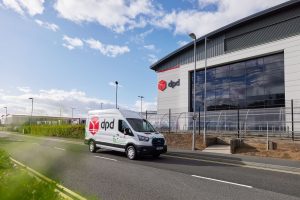 We still have a lot of challenges ahead. Firstly, it was the mental mindset but we changed this in early 2010 by fully offsetting Co2 emissions. Now it’s about transforming our entire fleet and not only the last mile, but our middle mile into electrical vehicles. The difficulty today is the accessibility of the electric grid in certain geographies in Europe, where there is simply no availability anymore of electricity. We continuously increase the size of our low-emission fleet by working closely with our partners, notably manufacturers, energy providers and transport partners, to drive towards greater availability of electric vehicles and charging points in our Business Units.
We still have a lot of challenges ahead. Firstly, it was the mental mindset but we changed this in early 2010 by fully offsetting Co2 emissions. Now it’s about transforming our entire fleet and not only the last mile, but our middle mile into electrical vehicles. The difficulty today is the accessibility of the electric grid in certain geographies in Europe, where there is simply no availability anymore of electricity. We continuously increase the size of our low-emission fleet by working closely with our partners, notably manufacturers, energy providers and transport partners, to drive towards greater availability of electric vehicles and charging points in our Business Units.
On-site energy management is key to us being able to optimally charge and operate our EV fleet. We do see some challenges emerging in the amount of energy we have available on some of our sites to ideally charge our vehicles. So we are working closely with local municipalities authorities to see how we can speed up those elements.
What are your biggest sustainability achievements so far?
Geopost is committed to become Net Zero by 2040. We are the first global parcel delivery company to have both its near- and long-term carbon reduction targets approved by Science Based Targets initiative (SBTi). This trajectory requires us to drastically reduce our GHG emissions, notably by transforming our first and last mile fleet to low-emission alternatives to diesel. This also supports our efforts to cover 350 of Europe’s largest cities with low-emission delivery solutions by 2025.
We launched our ambition to be Co2 neutral in 350 cities by 2025. This year (at the end of the second quarter), almost 8,000 low emission vehicles have been deployed, and 102 European cities now deliver fully low emission transport. So we are certain that we will reach our goal in the next two years. But yet again, we need to have the electricity available, especially in those bigger cities so we can make the best impact there. It’s also connecting and making the best use of our hybrid network.
How are you encouraging your customers to be more environmentally friendly?
So it’s not only last mile to home, but it’s also deliveries into our out of home locations.
And we now need to tell the consumers to pick these parcels from the locations in a environmentally friendly way. Preferably, walking, biking, etc. We have lots of research on where to locate out of home delivery options to avoid consumers the need to use their cars to pick up their parcels because then it becomes less environmental friendly. And we cannot control the behaviour of the companies that use our services but we can influence the behaviour of our customers. And we should.
What are you doing to influence customers?
We are doing many things to make our services even easier to use so that’s all about focusing on the user experience and how easy it is to pick up or drop off parcels. And its also about dropping off returns, we will be launching QR codes and label free return options. We are also partnering with post offices for example in the UK to make it even easier for customers. And again, we are really data driven – looking at locations – we want our drop off and pick up points to be within a five minute bike ride of 85% of the population in Europe. we’ve already ramped up the Out Of Home Network towards 97,000 points in Europe as we speak, and we are aiming to reach 100,000 this year.
In what ways is their sustainability agenda encouraging Geopost to be more creative in the way it operates?
I think all of our teams share the same ambition that if we want to be, and remain this front runner in sustainability, then we need to be creative. And we see lots of local initiatives in the news, that they are even going the additional or the extra mile in making the buildings more environmentally friendly, dividing the waste in a proper way, encouraging subcontractors into more environmental practices. And at Geopost’s head office in Paris we share these best practices identified all over Europe, with local teams and pushing them out locally. At Geopost the culture here is that we are in a sustainability race and local branches try to outdo each other, increasing the speed of transformation overall. We have an annual management meeting every year for all the senior executives and we reward local sustainability initiatives with big prizes. People really want to be on the stage being recognised!
Could you tell me about your day definite delivery service?
This is our international or cross border network where we connect all our local business units to each other. We think, especially in this ecommerce market, that it’s not only about being the fastest, but it’s about being consistent and reliable. So we have built a network that is as consistent in its quality performance as it is reliable so we can tell our customers, if you want to ship a parcel from let’s say, Warsaw to Madrid, it will take you three days and we will constantly update our customers if anything going wrong and we will implement predictive data so they can plan for any delays.
Why is there such a demand for predictable services?
We all have a strong desire to be in control and to know when and where the parcel will be delivered. I think if you look at the sustainability or co2 calculations in Europe, we will start using more sea to road transport rather than air transport, which in my opinion makes the need for consistency and reliable quality higher than it is today. I believe there will have to be a shift to away from the fastest express delivery (air) which is really predictable but also expensive and towards more road based, less fast, but more efficient and easier to predict. At least that’s the bet we’re taking.
How are you planning for the peak season with so many variables this year?
Every year, we have a lot of operational plans to prepare for peak. So we are already ramping up people, networks lines and sorting capacity. In all our divisions we have projects labelled ‘confidence’ or ‘trust’ all focused on delivering the best peak ever for customers. Because we fully understand that not only are we in challenging economic times, but so is the e-commerce industry. And they are heavily dependent on our quality of delivery to make the necessary sales in peak season.
How can you make accurate forecasts?
We put a lot of focus on forecasting and making sure that we have the capacity available in the in our facilities. We are working with a couple of scenarios because honestly, since COVID, real forecasting is very, very difficult. So we have a very optimistic forecast and a realistic forecast. If you see what’s happening in the economic climate, the war in Ukraine and the Middle East, nobody really can predict where we will be in two months’ time. So we are working on various scenarios that we can switch to depending on the actual volume at peak. We need to be magicians and we will be – to deliver on peak.
You mentioned at the start there is a problem with labour scarcity – how are you addressing this?
We have launched two important strategic initiatives called Employer of Choice and Partner of Choice. So as you are probably aware, we work with a lot of subcontractors in our last mile delivery. And we really see them as partners. Everyone needs to benefit from the work we are doing. So working according to the market standards in each country and treating people fairly – and for the last three or four years these elements are now being filtered to the operational processes as they are part of our strategy. We don’t only want to be the front runner in sustainability, but on all the ESG topics, including employees who we call our partners. It’s an ecosystem that needs to work smoothly, to allow a fair way delivering the best quality for our customers.
In terms of e-commerce, how would you like the sector to view Geopost?
When I talk to my customers, I really only want them to compliment us. I want them to acknowledge that we consistently deliver on our promises. But in all honesty, I know it’s a huge territory which we cover, so we will never be a failure free system – we will make mistakes. So I want my customers to look at Geopost and say: these guys are entrepreneurial, they do whatever it takes to deliver what I need. And when they make mistakes, they solve it in an entrepreneurial partnership way. And in this way they will be confident to work closely with Geopost again and again. I want to be seen as a partner to the sector too – together we can drive this industry forward.

